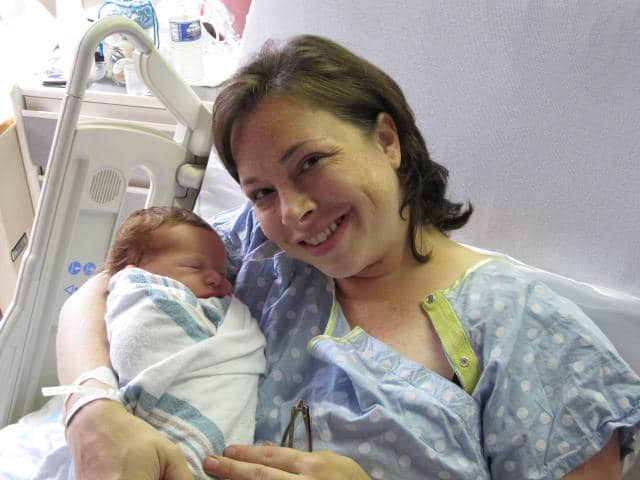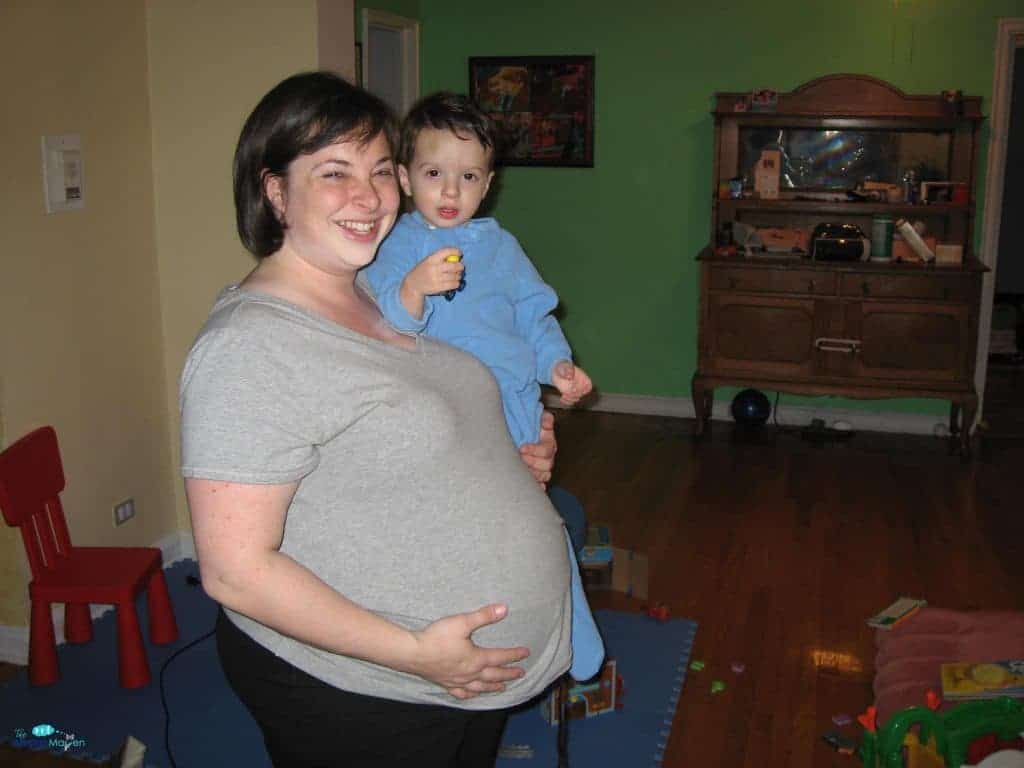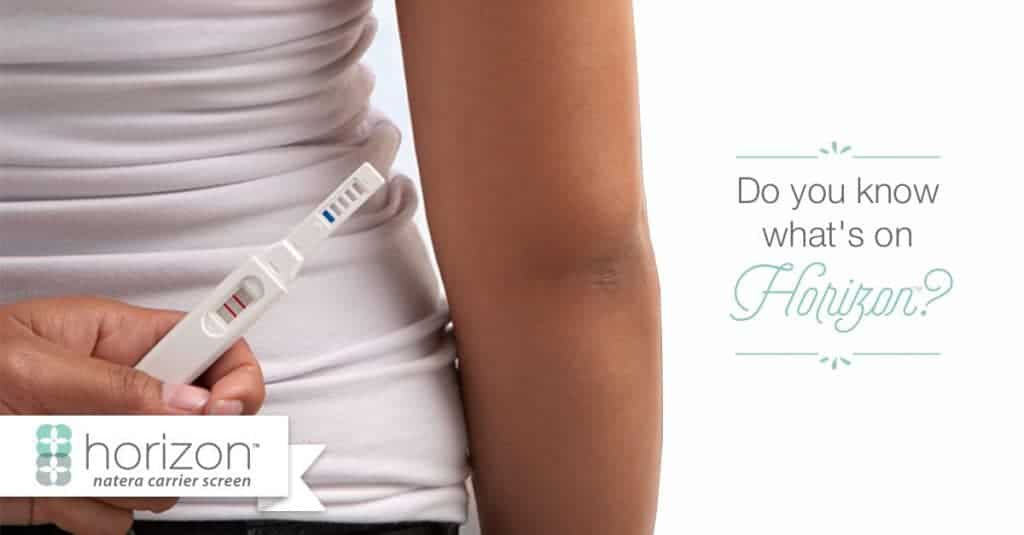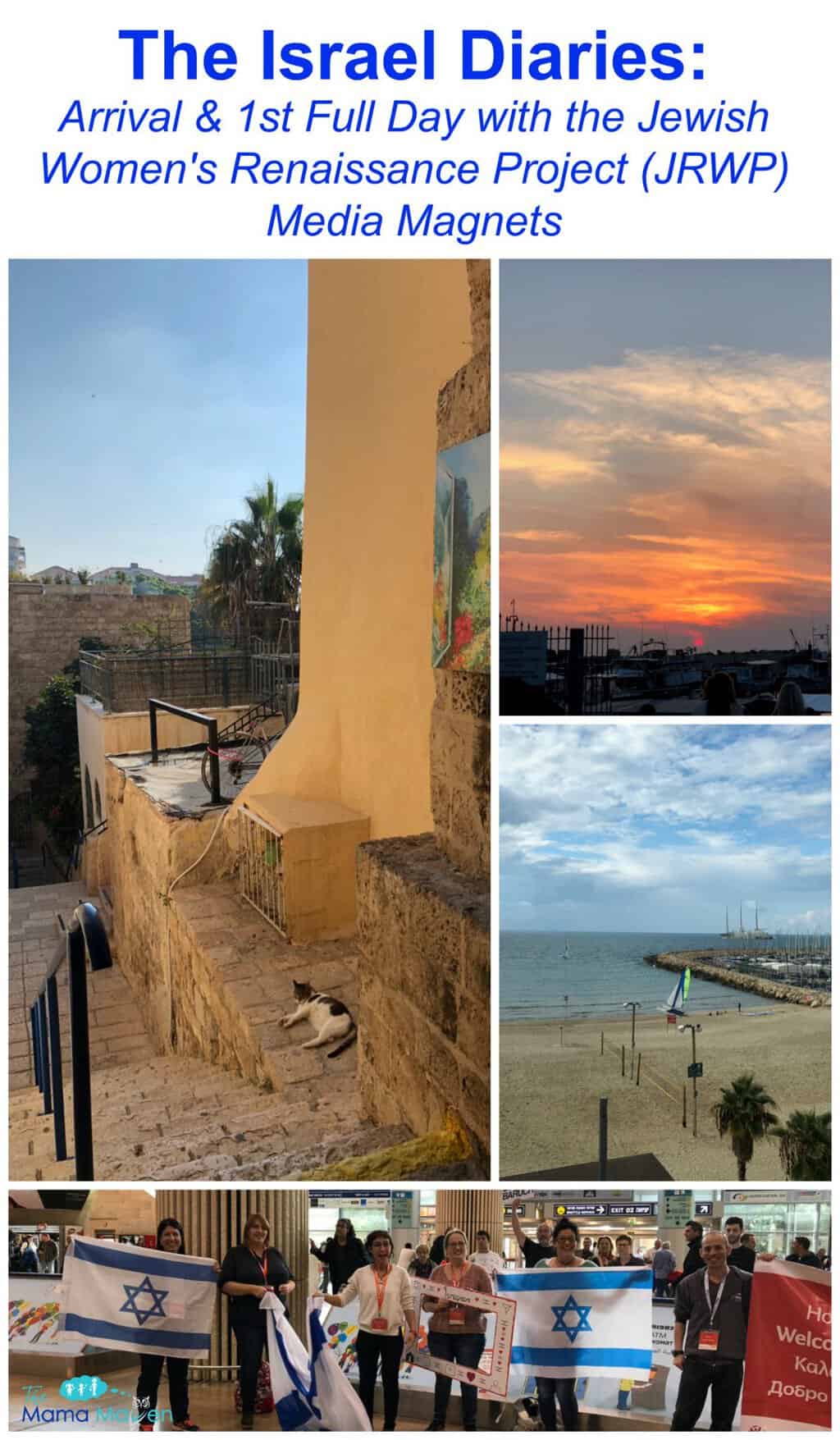I met my husband at 31, married at 33, and was pregnant 4 months after that. While I didn’t consider myself an older mother, my OB warned me that I was close to be considered an “older mom” — as I was going to deliver three months before my 35th birthday. We knew that we needed a crib, clothes, stroller, prenatal vitamins, but we didn’t consider that we should get genetic testing.

Women over 35 are considered high risk and of “advanced maternal age.” I was overweight and was advised not to gain a lot of weight. I was able to stay pretty active (even though I was throwing up until way into my seventh month). In month 8, my ankles swelled up and my blood pressure became very high. My water broke two weeks early and my son made his way into the world. My second pregnancy was easier, I was 37 and worked right up to the end. For my third (surprise) pregnancy, I had just turned 39 and had been in the best shape in years (I lost 54 lbs). I tried to really watch my diet and keep up with exercise.

Luckily for us, during my first pregnancy, my OB suggested we have genetic testing. We are Jewish and one of my close relatives is a carrier of Thalassemia, so we were happy to hear that both my husband and I were not carriers of any of the genetic diseases. And being that we are of Ashkenazi Jewish Heritage, the stats are scary — 1 out of 4 people of Ashkenazi Jewish heritage is a carrier of one of these genetic conditions, most commonly of Gaucher disease, cystic fibrosis, Tay-Sachs disease, familial dysautonomia, or Canavan disease.

The Horizon carrier screen is a simple test that looks at your genes to see if you are a carrier for specific autosomal recessive and X-linked genetic conditions, such as cystic fibrosis or
Duchenne Muscular Dystrophy. It is common for people to be carriers of at least one genetic condition. Carriers are usually healthy; however, they have a risk of passing on a genetic condition to their children. If you and your partner are both carriers for the same recessive genetic disease, you have a 1 in 4, or 25%, chance of having an affected child in each pregnancy. If a woman is a carrier of an X-linked disease, she has up to a 50% chance of having an affected child in each pregnancy. Horizon can provide valuable information to you about your carrier status before or during pregnancy.

Who needs a Horizon genetic carrier screen? It’s very common for women to have concerns about the health of their baby. If you have concerns, you should talk with your healthcare professional. He or she will advise you as to what tests you might want to have to help give you peace of mind.
While I’m not going for a fourth pregnancy, Horizon genetic screening should be on your pregnancy Prep Check List for these reasons:
- It is common for people to be carriers of 4-6 different recessive genetic
conditions. If you and your partner are carriers of the same genetic condition, you have a 1 in 4 chance of having an affected child. - Horizon screens for up to 274 autosomal recessive and X-linked genetic conditions
- Horizon Genetic Carrier Screening can help parents understand their chances of having a child with a specific genetic disease before or during pregnancy, so they can plan ahead.
- Symptoms of genetic diseases are not always evident at birth and may not be diagnosed until childhood. This may cause a delay in helpful medical and therapy interventions. In the meantime, parents may go on to have additional children who are at risk to inherit the same genetic condition.
- Thanks to carrier screening tests such as Horizon, more couples at risk of having a child with a genetic disease are being detected earlier. This allows for diagnosis in the newborn period, prenatally and even pre-conception. Early carrier detection helps couples make informed reproductive decisions and ensure that babies affected by these diseases get the best care possible including early therapy and intervention.
For more info: https://www.natera.com/
This is a sponsored post, but as always, all opinions and views are my own.





Technology these days is so amazing! They did not have this eleven years ago when I was pregnant with my daughter but I definitely would have taken the test if they did. Thank you for sharing this!
Great test! Love how advanced technology has come to provide families this valuable information so they can be best prepared for the birth!
This is great, it’s amazing to see how far we’ve come and only in the 7 years that I’ve been a mom!
What a great test to help moms to be.
Sounds like such a valuable and simple test. If I was young again I would definitely consider doing this,